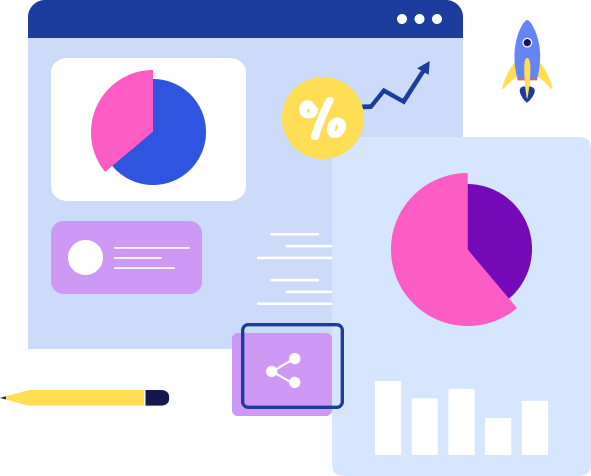Harnessing AI for SEO: Boost Your Rankings with Cutting-Edge AI Strategies
Harnessing AI for SEO: Boost Your Rankings with Cutting-Edge AI Strategies
As AI continues to transform industries, SEO is no exception. However, rather than just focusing on the standard applications of AI in content creation or keyword research, this article ventures into the futuristic, original, and next-level possibilities of AI-driven SEO strategies that go beyond anything imagined before. Let’s explore how AI will evolve SEO in ways that even Google hasn’t fully considered.
1. AI-Driven SEO Sculpting: Real-Time Adaptation for Competitive Shifts
One groundbreaking concept is AI-Driven SEO Sculpting. This next-generation AI tool goes far beyond simply analyzing data or keywords. Imagine an AI that adapts your website’s structure, content, and internal linking in real-time, based on the ranking shifts of your competitors and changes in search engine algorithms.
- How It Works: The AI constantly monitors competitor sites, tracking their keyword performance, on-page updates, and backlink growth. It then adjusts your site’s architecture, internal linking, and content flow in response to these shifts, “sculpting” your SEO strategy on the fly.
- Real-World Application: Imagine a situation where a competitor suddenly surges in rankings for a key term. Instead of waiting to react manually, AI-Driven SEO Sculpting dynamically shifts the flow of authority between your pages, optimizes your meta descriptions, and tweaks the layout to better suit user intent—all without any manual intervention.
2. AI Precision Optimization: Targeting Individual Searchers with Tailored SEO
This strategy takes personalization to the extreme. Instead of simply using AI to identify broad search intent, AI Precision Optimization enables your website to target individual users by predicting and adapting to their search behavior in real time.
- Futuristic Capability: This AI learns each visitor’s patterns by analyzing their search history, preferences, and engagement data across the web. It uses this data to dynamically adjust the website’s content for each visitor, presenting personalized meta descriptions, headers, and even product recommendations based on what it knows about that user.
- Example Scenario: A user who has a history of searching for local SEO services but has recently started exploring international markets might see a dynamically generated version of your homepage focused on “International SEO.” Meanwhile, a visitor focused on technical SEO sees custom content around schema markups and Core Web Vitals.
3. The Future of AI-SEO: Predicting and Adapting to Search Intent Before It Even Happens
AI will eventually predict search intent not based on past behavior alone, but by integrating data from emerging trends, social media, and even environmental factors. Imagine an AI that knows the upcoming changes in search behavior even before users themselves do.
- How It Works: By analyzing vast datasets, such as social media conversations, news trends, and even geographic patterns (e.g., sudden spikes in a city’s search for “remote work” after a local event), this AI predicts new keywords before they gain traction.
- Example: If a company is about to launch a major product and news starts trickling out online, AI could predict a spike in searches for that product and automatically start generating keyword-rich content before the competition.
4. AI-Guided Site Architecture: Semantic Optimization at an Unseen Level
Forget basic site maps or manual silo structuring. With AI-Guided Site Architecture, your site’s entire layout and linking structure evolve based on an AI’s ability to understand semantic connections between content at a deep linguistic level.
- How It Works: This AI constantly evaluates the way search engines understand the relationships between topics on your site. It then restructures your internal links, heading hierarchy, and even page URLs to ensure that Google sees the clearest possible narrative of your expertise.
- Innovative Example: If your website covers SEO, AI-Guided Site Architecture would ensure that your content about “Local SEO” is semantically linked to related concepts like “Google My Business Optimization” and “Voice Search for Local SEO,” continually adjusting the structure to reinforce topic relevance.
5. AI Resonance Analysis: Measuring Emotional and Cognitive Impact for SEO
AI is already good at optimizing content for readability and engagement, but what if it could optimize based on emotional impact? AI Resonance Analysis is an AI-driven process that evaluates how well your content emotionally resonates with readers and adjusts your SEO strategy accordingly.
- How It Works: By analyzing emotional reactions (through sentiment analysis, facial recognition data, and social media engagement metrics), this AI determines which emotions your content triggers. It then makes adjustments to content length, tone, and imagery to ensure your users’ emotional journey aligns with your SEO goals.
- Futuristic Impact: Imagine the AI noting that readers who engage with emotionally charged titles convert at a higher rate. It then dynamically adjusts your headers and meta descriptions to reflect emotionally resonant keywords like “stress-free SEO” or “peace of mind with optimized rankings.”
6. AI-Driven Link Sculpting: Intelligent Backlink Acquisition
AI could completely revolutionize link-building strategies. Instead of manually seeking out backlinks or using traditional tools, AI could use machine learning to identify ideal link opportunities and even initiate contact with potential partners.
- How It Works: AI scans the web for relevant, high-authority sites that align with your niche. It evaluates their content, backlink profile, and social media reach to predict which sites are likely to link to you. The AI then tailors outreach emails, adjusting language based on the recipient’s engagement patterns and prior response rates.
- Example Scenario: Your AI detects that a prominent blog just published a post on an emerging SEO trend that you’ve already covered in your content. The AI sends a personalized outreach email, referencing their article and offering a link to your deeper dive on the topic, automatically boosting your backlink profile.
7. Predictive SEO Adjustments: AI Anticipates Algorithm Updates
In the near future, AI could predict algorithm changes before they occur and condition your site to prepare for them in advance. Using historical data and current trends, Predictive SEO Adjustments AI would constantly tweak your site’s optimization strategy to stay ahead of Google’s updates.
- How It Works: This AI tracks past algorithm changes and the signals Google uses to rank sites. It cross-references those with current SEO trends (like Core Web Vitals, mobile-first indexing, or passage-based ranking) and makes automatic adjustments to ensure your site is fully prepared before a new update is rolled out.
- Example: The AI detects that Google has started to value “video content” more highly. Before the next update, it optimizes your pages for video-rich results by embedding video content and adding structured data to video transcripts, ensuring your site remains competitive.
8. Unconventional AI Applications: AI for Accessibility SEO
Another original concept would be to employ AI for Accessibility SEO, where AI ensures that your content is not only SEO-optimized but also fully accessible to users with disabilities, a factor that’s becoming increasingly important for rankings.
- How It Works: The AI reviews your site’s content to ensure it’s fully accessible to all users, including those with disabilities. It automatically adjusts alt text, ensures proper heading structure for screen readers, and even adjusts color contrasts for visually impaired users.
- Impact: Not only does this enhance your site’s SEO by complying with Google’s increasing focus on accessibility, but it also broadens your reach to new user groups.
Final Reflection: The Future of AI-SEO Collaboration
The future of SEO lies in AI’s ability to not just follow trends, but create them, shaping the way we approach search engine optimization. The strategies outlined in this deep dive go far beyond today’s AI-driven SEO tools and represent a revolutionary shift in how we think about SEO itself. From real-time adjustments and emotional optimization to predictive SEO and personalized experiences, AI will redefine how we approach search visibility.













